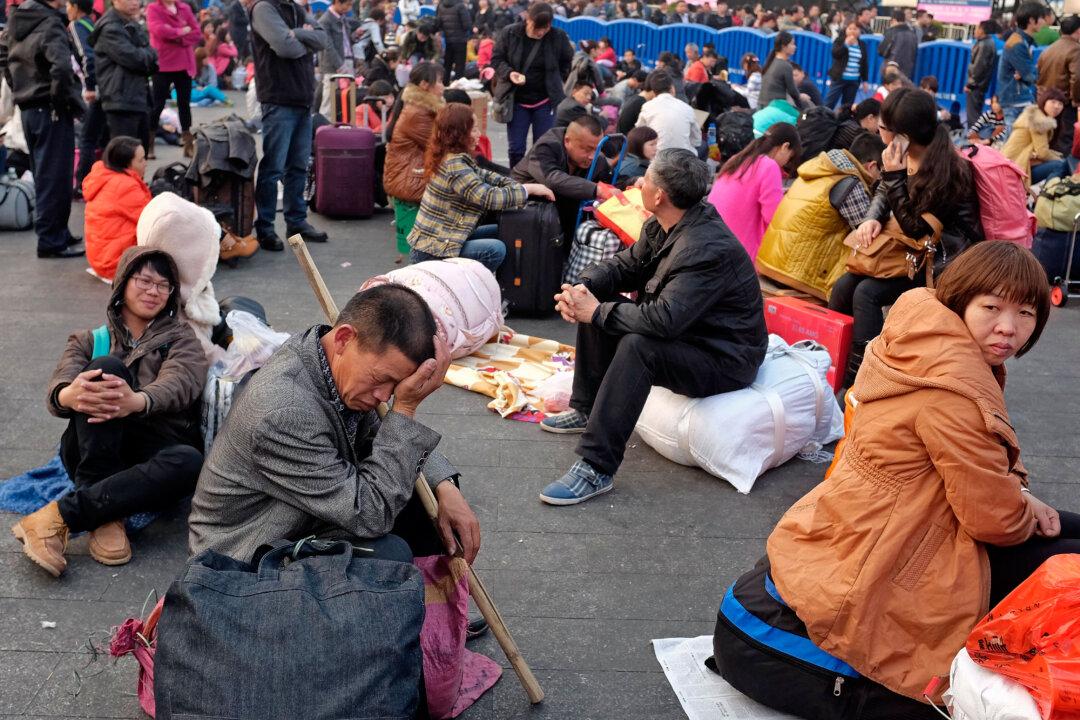A blog post alerted China’s netizens to the plight of the migrant workers in Yunnan: Homesick, short on the cash needed for train tickets, and with Chinese New Year fast approaching on Feb. 19, they’ve chosen to walk back to their hometowns, some hundreds or over a thousand miles away.
A Feb. 14 post on the social networking site Weibo by a netizen calling himself “Suchen migrant worker” described how construction workers at the Suchen construction company in Dali Prefecture in Yunnan Province had not been paid for months despite repeatedly badgering management for their wages.
“With no money, those of us who are homesick have decided to make the journey home on foot,” the post read.
Included in the Weibo post were photos showing some 20 workers, luggage or children in tow, as they headed away from Dali. In one photo, the workers are shown begging for money at the train station, but to no avail.




